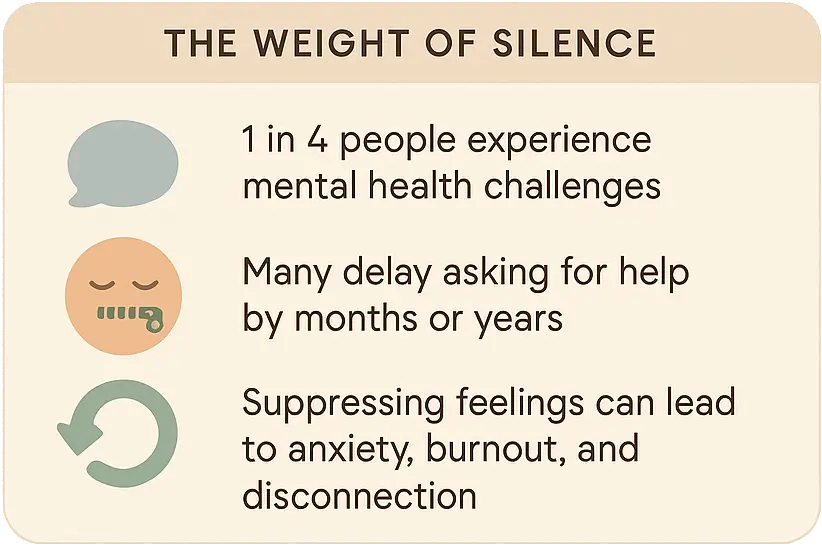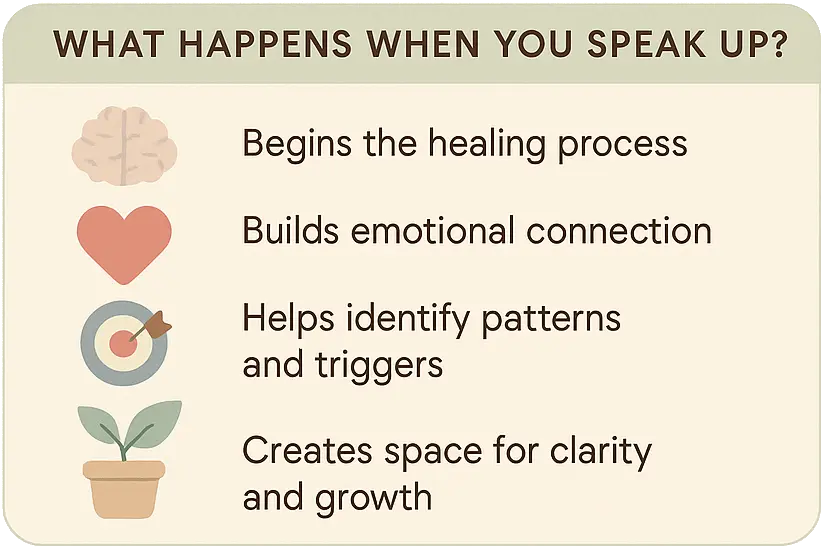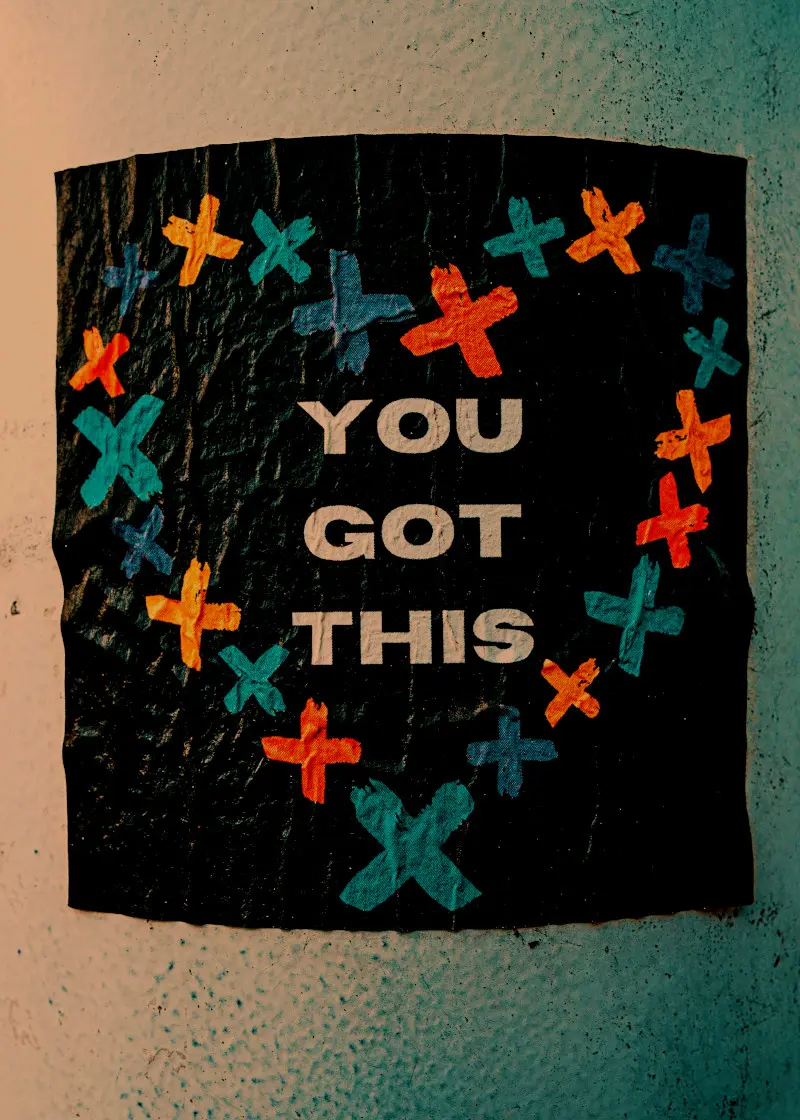There’s a quiet power in saying something out loud. It might be a sentence as simple as “I’m not okay,” or a few tentative words about something that’s been weighing on your chest for weeks—or even years. And yet, that small moment of speaking up can be the beginning of something life-changing.
As a counsellor, I often meet people who have carried their pain in silence for a long time. Sometimes it’s out of fear—fear of being judged, misunderstood, or brushed off. Other times, it’s because they’ve grown up believing they have to be strong, keep going, and “just get on with it.”
But here’s the truth: keeping it all in doesn’t make you strong. It just makes you isolated. And isolation is often the breeding ground for anxiety, depression, burnout, and feelings of hopelessness.

The Cost of Staying Silent
We live in a world that’s starting to talk more openly about mental health—and that’s encouraging—but many people still feel that their struggles are somehow not valid enough. “Others have it worse,” they tell themselves. Or, “I should be able to handle this on my own.” Sound familiar?
What this does is create an inner pressure cooker. You keep pushing things down until they start to leak out in other ways—maybe through irritability, sleepless nights, physical symptoms, or a general sense that something’s not right, even if you can’t quite name it.
The longer we stay silent, the more disconnected we become—not just from others, but from ourselves.
Speaking Up Doesn’t Have to Be Perfect
Here’s something I wish more people knew: you don’t have to know exactly what to say. You don’t have to have the “right” words, or even be able to fully explain what’s going on. Speaking up is messy sometimes. It can come out in a jumble of tears, half-sentences, or even a text message that just says, “Can we talk?”
And that’s okay.
Healing doesn’t begin with the perfect sentence—it begins with the courage to let someone in.

Who You Talk To Matters
Choosing the right person to open up to makes all the difference. Maybe it’s a friend who really listens, a partner who cares, or a professional who’s trained to help you make sense of things. The important part is that you feel safe and heard.
If you’ve had a bad experience in the past—perhaps you opened up and felt dismissed or judged—I want to acknowledge that pain. It takes enormous bravery to try again. But the right support is out there, and you deserve to be heard without shame or minimising.
The Relief of Being Understood
One of the most common things people say after their first counselling session is: “I feel like a weight’s been lifted.” Not because we solved everything in an hour, but because they finally said things out loud. Things they’ve never said before. Things they thought they had to keep hidden.
There’s relief in being seen. There’s healing in not having to pretend anymore.
You’re Not Alone
Whatever you’re carrying—stress, grief, self-doubt, anger, confusion—you don’t have to carry it on your own. Speaking up doesn’t make you a burden. In fact, it opens the door for connection, understanding, and healing.
Even now, reading this, if a part of you is thinking, “Maybe I do need to talk to someone,”—listen to that voice. It’s not weakness; it’s wisdom.
Start small if you need to. Jot things down in a notebook. Send a message to someone you trust. Or reach out to a counsellor, even just for a first chat. You don’t have to commit to a whole journey—just one step. That first conversation might be the one that starts to shift things.
Final Thoughts
There’s no shame in struggling. Life can be incredibly tough at times, and none of us are immune to pain. But we are allowed to reach out. We are allowed to say, “This is too much,” and let someone be there with us in it.
So, let’s talk about it. Let’s stop pretending we’ve got it all together. Let’s make room for honesty, vulnerability, and support—because that’s where the real healing begins.
You don’t have to have it all figured out. You just have to be willing to start.





